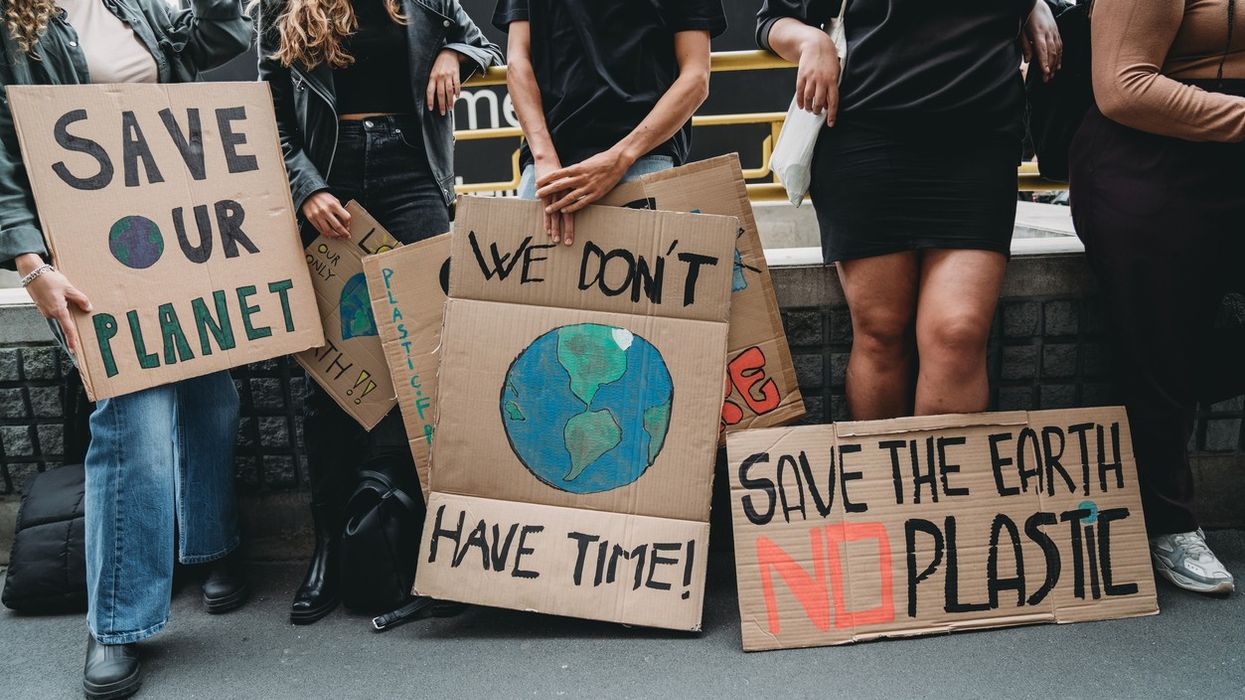GREENPEACE UK has said that the climate emergency is a legacy of colonialism and people of colour suffer the most from its ill effects.
A report by the Runnymede Trust and Greenpeace has said that people of colour in Britain are more likely to live close to a waste incinerator.
"Black people in London are more likely to breathe illegal levels of air pollution than white and Asian groups. And Black people living in England are nearly four times more likely than white people to have no access to outdoor space at home, whether it’s a garden or a balcony," the report said.
"The treatment of entire groups of people as inferior or less deserving of a decent life is still allowing governments and industries to dump environmental impacts on the global South. Since the heaviest impacts of the climate crisis fall onto poorer, less powerful countries, fossil fuel giants and governments in the global North feel less pressure to get to grips with the problem."
The report added: "Since the UK’s plastic waste is shipped off to some of these same countries, the plastic industry and our government can get away with not tackling our plastic problem at the source. And since it’s mostly Indigenous peoples and local in the global South that suffer from the destruction of the world’s rainforests to produce palm oil, meat or timber, companies and governments can carry on chopping down this climate-critical ecosystems with near impunity."
A recent YouGov survey shows that these environmental inequalities are hard to see for the vast majority of the UK public, most of whom won’t experience them first-hand. Over a third, (35 per cent) of those surveyed believe that people of colour and white people in the UK are just as likely to live close to a waste incinerator, with just 12 per cent believing communities of colour are more likely to have one in their area.
More than half of respondents (55 per cent) believe there’s no difference in exposure to air pollution between white people and people of colour in London, with just 16 per cent believing that BAME communities are worse affected.
"People of colour in the UK are more likely to live in poverty than their white counterparts and are also more likely to live in economically deprived, urban areas. The UK’s most deprived areas suffer most from environmental harm, and people of colour in those areas are likely to suffer. Of course, economic deprivation is both a tool and a consequence of racism," the report said.
Pat Venditti, executive director, Greenpeace UK, has said that it wants to shed light on the links between racism and environmental harm and make it a central pillar of the organisation's work.
According to the report, people of colour across the globe are disproportionately losing their lives and livelihoods as a result of the environmental emergency.
"These impacts fall heaviest on those who did the least to cause them and have the least resources to be able to cope with it. Much of the carbon from fossil fuels in the atmosphere today came from Europe, the US and other wealthy countries in the global north, yet nearly all the countries most impacted by the climate crisis are in the global South," it added.
The action recommended by Greenpeace to tackle climate emergency are-
- Those most responsible for the environmental emergency must be held accountable and pay their fair share of the loss and damage. The next major climate summit – the COP27 hosted by Egypt – will be the key moment to make this happen.
- When it comes to money, technology and political power, centuries of exploitation have tilted the global playing field against poorer countries in the South of the world. This is why shifting power and resources back to these countries is absolutely key to tackling environmental injustice. Practical ways to achieve this include debt cancellation, reforms to international institutions, taxation that makes polluters pay, enactment of land-rights and the patent-free sharing of green technologies with the global South.
- We need to move away from a wasteful economy that treats people and nature like resources to be mined for profit to one that’s grounded in restoring nature and allowing people to thrive. Space for new thinking is needed around alternative ideas to promote progress that is based on the collective well-being of both humans and nature.
Dr Halima Begum, the chief executive of the Runnymede Trust, said: “Speaking as someone from one of the sacrifice zones identified in the report, whose father’s village in Bangladesh remains underwater due to the increasing devastation wrought by climate change, this report confirms that we cannot overcome the environmental emergency faced by the entire planet without addressing patterns of global racial disparity.”
Newham, in east London, has the largest minority-ethnic population of any local authority area in the UK, and it is one of the most deprived. It is also the most polluted.
On average, Newham residents, 71 per cent of whom are from ethnic minorities, are exposed to levels of particulate matter air pollution that are a third higher than World Health Organization limits, and one in seven are exposed to levels of nitrogen dioxide above the UK’s limit for human health. Poor air quality in the borough kills 96 residents a year, according to the local authority.





